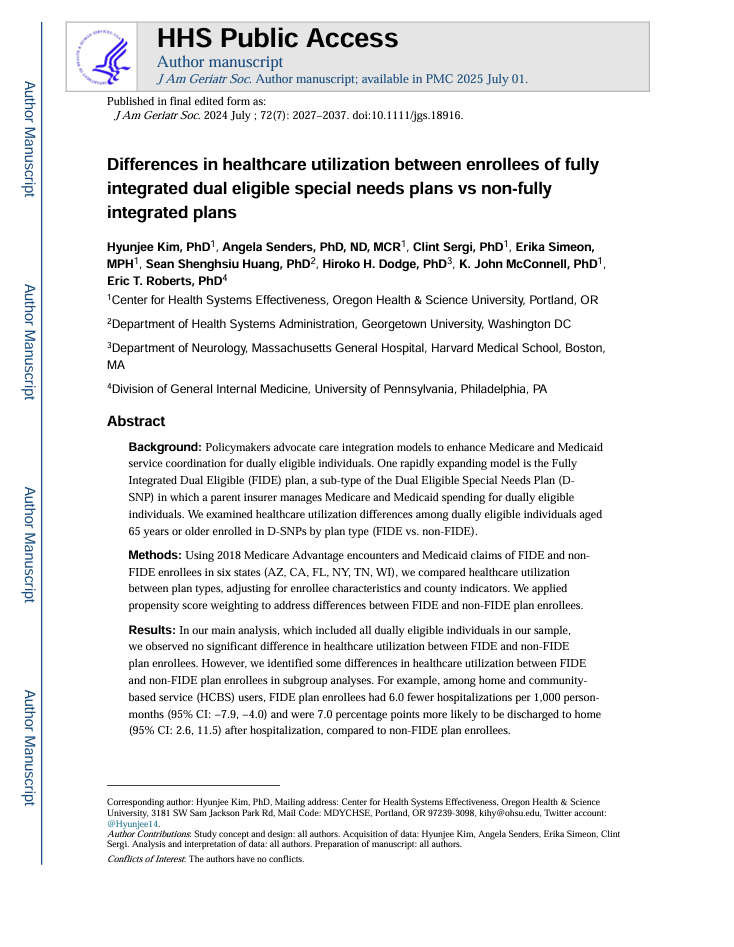Headline
Among people who use home- and community-based services, those enrolled in a fully integrated dual eligible (FIDE) plan had lower hospitalization rates than other dual eligible special needs plan (D-SNP) enrollees.
Background
FIDE plans are a subset of D-SNPs that have a higher degree of integration across Medicare and Medicaid benefits, financing, and administration. This study examined how utilization of care differed for enrollees in FIDE plans and other D-SNPs, based on 2018 Medicare and Medicaid data.
Findings
Enrollees in FIDE plans and non-FIDE D-SNPs had no difference in health care utilization. Notably, however, among the subgroup of people who use home- and community-based services, FIDE enrollees had lower hospitalization rates and higher rates of discharge to home. Since this group accesses more Medicaid-funded services and has greater needs for care coordination, FIDE plans may be best positioned to improve outcomes for this group.
Policy/Program Takeaways
FIDE models have been expanding, and this study can inform policy approaches to designing FIDE approaches and related initiatives to improve care coordination and outcomes for dually eligible individuals.


